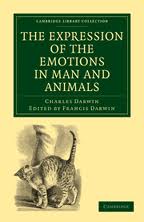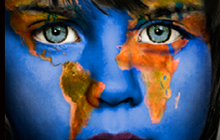The idea that humans are just another species has gained increasing traction in recent times. Many proponents of the idea believe first and foremost that there are no dimensions to life other than the physical one, and subsequently reason that the only observable difference between humans and other species would be physically observable differences. The opposing view – that humans are the ultimate creation – has a much longer history. Adherents of the “traditional view” propose that God made humans in His own image, placing them in a separate category from animals. It should be noted that these two stances allow for middle-ground positions also, which will be explored later in this course.
What most everyone agrees with is that for most of recorded human history, our species has dominated the earth. By using far superior intelligence and social skills, humans have spread across and populated the globe, subduing, stewarding and exploiting environments and ecosystems along the way (depending on time and place and one’s view of things). During this process, many religions appeared, each having a claim about what makes us human. Some Eastern philosophies like Buddhism and Hinduism argue that we are not as special as our accomplishments might merit. In most branches of Buddhism, the sole purpose of human life is to reach enlightenment, to perfectly understand our communal role in the universe. Both of these ideologies believe all life is sacred: pantheistic religions like these assert that all is God, so this is a logical necessity.
However, in monotheistic religions, such as Christianity, Judaism, and Islam, humans are the pinnacle of creation. In these schools of thought, the creator of the universe bestowed on us unique characteristics of the Imago Dei, or the image of God. According to these monotheistic worldviews, while the created order is good and has value and is to be stewarded with care (a concept in the Judeo-Christian view known as the Stewardship Mandate), it is clearly not problematic for humans to harvest plants or animals and eat them.
Regardless of the real value of humanness, one thing is certain: with all due modesty, we’re head and shoulders above the rest of the animal kingdom in terms of accomplishment. Given that, could it be possible that our species is really no different from all the rest? As our capacity to learn about the world expands in modern times, we’ve attempted to tackle this important question. Those who discount or discard the traditional view point out that we have discovered that animals share more with us than previously thought. From the ability to use tools, to the means to communicate messages, the animal kingdom has shown many traits that were once thought to be uniquely human. Consider the following video, where an ape exhibits a basic understanding of language – a concept many people considered, and still consider, an ability unique to humans.
Of course, some people view displays such as this as amusing and even wonderful, like the response of one’s pet dog to its master’s commands and prompts. To argue that this “learned response” demonstrates uniquely human attributes (the discernment and pursuit of beauty and goodness and truth) is a leap that one must consider. Is it reasonable or no?









